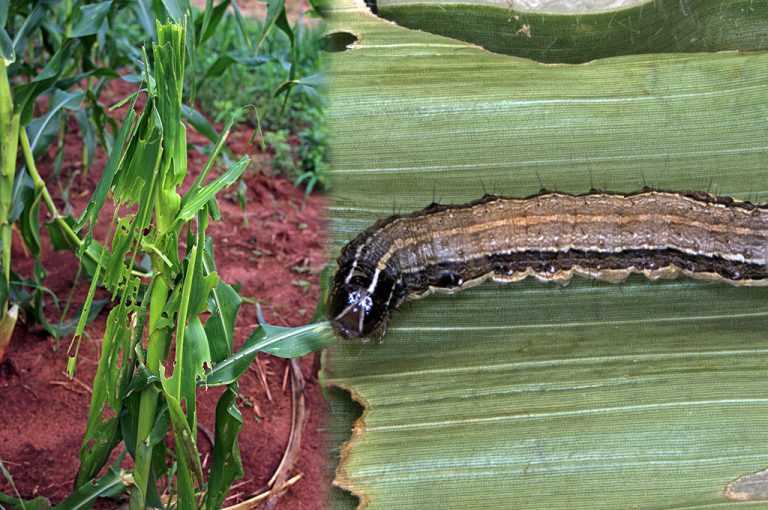
Zim Now Writer
Farmers in Mbire District, Mashonaland Central Province are counting their losses after the African armyworm destroyed over 15ha of maize 110ha of sorghum and 5ha of pasture, with authorities warning the public across the country to be on lookout for the pest, adding that the required chemicals are available.
Recently, the migratory pests and biosecurity control department said chemicals to fight the African armyworm are available and ready for distribution.
A Ministry of Lands, Agriculture, Fisheries, Water and Rural Development weekly update said that the first African armyworm outbreak this season was received from Mbire District, Ward 6-Kasuo on Christmas Eve.
Samples of the pest collected by the migratory pests and biosecurity control department found that the pest was in its 1st to 4th instar stages at densities of 40 to 50 larvae per square metre, attacking early crops of maize as well as grazing lands.
Moth catches continue to be recorded in Mashonaland West and there is high possibility of more African armyworm outbreaks occurring in other parts of the country.
“A total of 80 kg of Carbaryl have been delivered to the affected areas for control of the pest. There is 429 kg Carbaryl 85 percent WP in stock for the management of African armyworm this 2022-23 cropping season. African armyworm forecasting is in progress for other provinces for early warning with no outbreaks having been reported in these areas.
Related Stories
“Most farmers throughout the country are still planting their crops and the established crops are at early vegetative stages, making them susceptible to African armyworm damage,” said the report.
Migratory pests and biosecurity control department director, Shingirayi Nyamutukwa said he went with the chemicals to control the pest as soon as the reports came in.
Nyamutukwa said there is still work to be done in training stakeholders, extension workers and farmers so that they know the pests themselves and damage signs.
“Farmers should be on the lookout for African armyworm caterpillars in their fields. Scouting should therefore be done every day for early detection and control.
“Farmers should report any suspected caterpillars. We also respond on time so we advise farmers to take pictures of these pests and send them to us so that we can identify them,” he said.
African armyworm challenges have been reported for decades every cropping season.




















Leave Comments